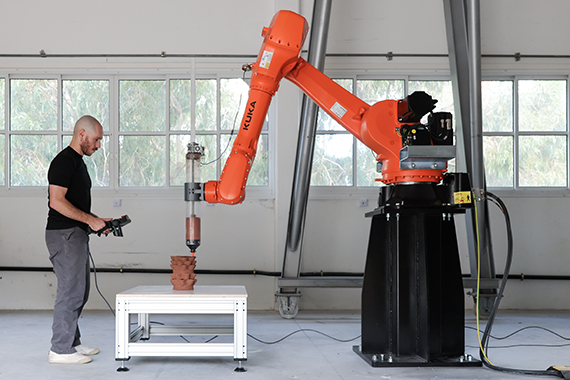
Afforestation in drylands is an active ecosystem restoration strategy shown to increase ecosystem services in these regions, which are highly prone to land degradation. Nevertheless, seedling recruitment is difficult in such projects due to various biotic and abiotic stresses. This paper proposes a methodology for providing tree seedlings in drylands with 3D-printed soil-based bioclimatic envelopes. The workflow suggests key aspects in transforming locally sourced soils to 3D printable, bioclimatically performable materials. Essential robotic tooling aspects and processing parameters are proposed. In addition, ways to embed site-specific data to algorithmically conceive a customized envelope according to the tree species are suggested.